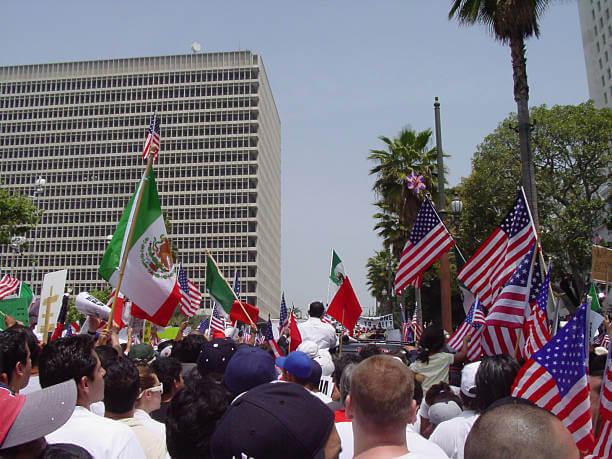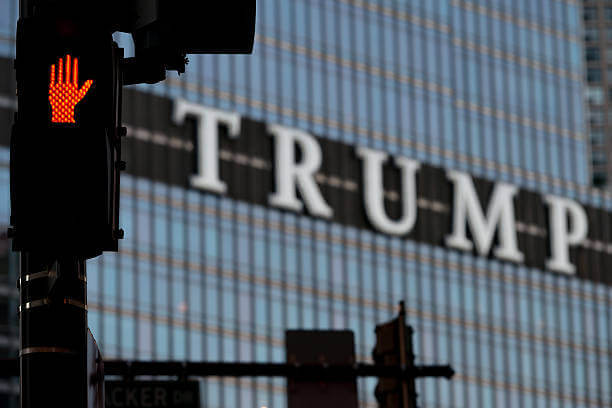The Ninth Circuit Court of Appeals overturned a 2020 ruling that had allowed the Trump administration to terminate the Temporary Protected Status (TPS) of hundreds of thousands of immigrants from El Salvador, Haiti, Honduras, Nepal, Nicaragua and Sudan.
Last Friday, a federal court of appeal decided to revisit a case that could decide the fate of more than 300,000 immigrants living legally in the United States on humanitarian grounds. This sets aside the ruling that allowed the government to revoke their temporary legal status.
An important but partial victory
Friday’s ruling is a victory, at least in the short term. TPS holders and their advocates have been urging Congress for years to allow those enrolled in the program to apply for permanent residency in the United States.
Accepting a request from attorneys representing immigrants enrolled in the TPS programs, the court of appeal expressed it would hear the case once again, this time in an “en banc session,” that is, before all the judges of the court. However, it is unclear when the 9th Circuit might rule on the case again.

The Trump administration and its battle against TPS
The decision is also the latest development in a complicated, years-long legal battle over TPS policy. This immigration measure allows the Department of Homeland Security to give protection from deportation and work permits to immigrants from countries beset by war, environmental disasters, or other humanitarian crises.
As part of its efforts to cut humanitarian immigration policies, the Trump administration sought to end multiple Temporary Protected Status programs. It was argued that the authority had long been abused by other administrations.

In 2018, a federal judge barred the Trump administration from ending the TPS programs for El Salvador, Haiti, Nicaragua, and Sudan. He said that officials had not adequately justified the decision, and that such terminations raised “serious questions” about whether they stemmed from animosity against non-white immigrants.
In 2020, a three-judge court for the Ninth Circuit overturned the lower court’s ruling, stating that the judges could not question the federal government’s decisions on TPS. The court also held that it found no direct link between then-President Donald Trump’s derogatory remarks about non-white immigrants, and TPS terminations.
That ruling, however, never went into effect because lawyers representing TPS holders asked for the case to be reviewed.
In addition, the litigation was connected to another lawsuit filed against the Trump administration’s efforts to end TPS for Nepal and Honduras. For its part, the government agreed that it would not end these policies until it was allowed to revoke the programs for El Salvador, Haiti, Nicaragua, and Sudan.
Biden’s presidency and a new approach
Under the Biden administration, the White House is taking a completely opposite approach to that taken by the Trump administration with respect to TPS, going so far as to extending the program to other countries in November 2022.
As of 2021, the case was suspended for more than a year. Meanwhile, the Biden administration was in negotiations with attorneys for the Temporary Protected Status holders to try to reach an agreement to resolve the case, including the possibility of giving the immigrants in question a pathway to permanent status.
However, those negotiations failed in October 2022. This fueled concerns that TPS holders from the affected countries could lose their legal status and be forced to leave the United States, or remain in the country without authorization.
The administration has also announced extensions of the TPS programs for Haitian and Sudanese immigrants living in the U.S., but it has not announced similar measures for immigrants from El Salvador, Nicaragua, Nepal, and Honduras, despite requests from advocates.
Ahilan Arulanantham, the lead attorney representing TPS holders, said the Biden administration may announce new programs for these countries to ensure that the fate of their clients is not dictated by a court ruling.
“We are pleased that the Ninth Circuit has agreed to revisit this case,” Arulanantham stated. “But we should never have gotten to this point. President Biden had – and continues to have – every opportunity to make good on his promise to protect the TPS-holding community.”
The Temporary Protected Status program does not provide its beneficiaries with a pathway to permanent residency or citizenship. Those who lose TPS protection may be deported, unless they apply for and obtain another immigration benefit.
Don’t worry, at Jaskot Law, we are a law firm specializing in complex immigration cases. If you do not want to return to your home country, or are facing deportation, call us at +1 (410) 235-6868.
Juan Berkowsky is a professional writer specialized in communications for social networks and digital media. His mission is to empower people through knowledge and access to information. He work with honesty and dedication to assist all those seeking to navigate the sometimes tough U.S. immigration process.


